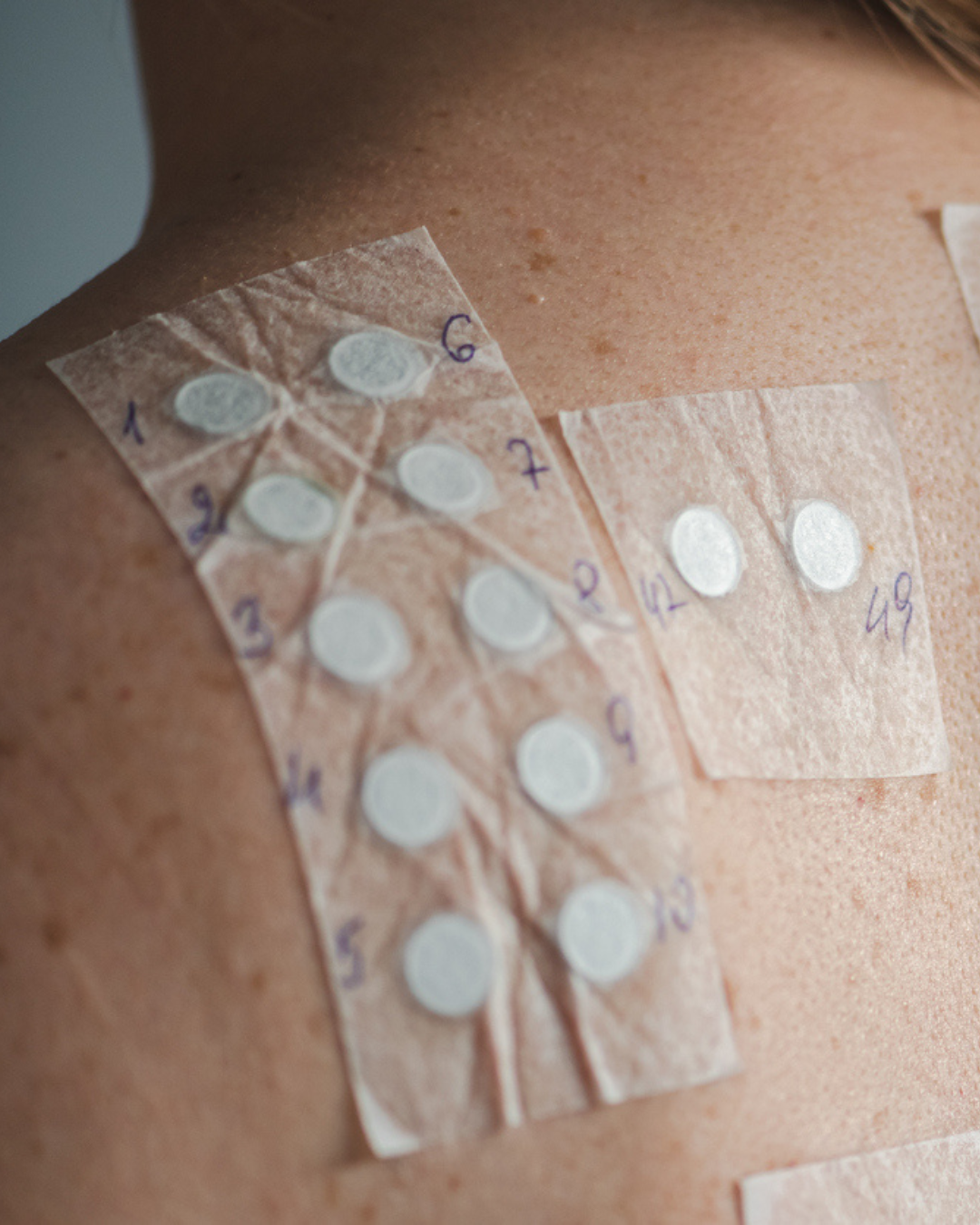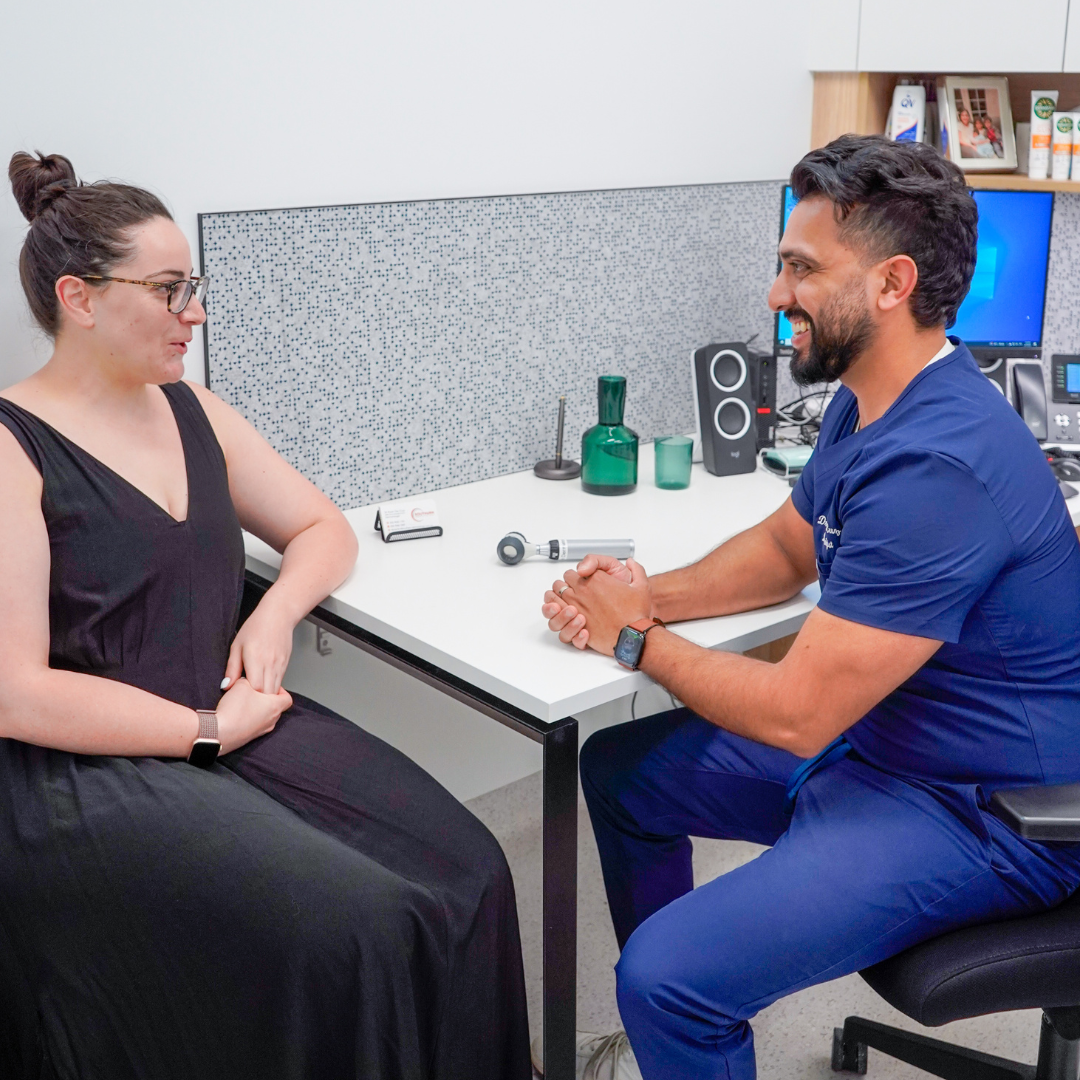
Identify Skin Allergies with Specialist Patch Testing.
If you’re experiencing persistent rashes, redness, or irritation, patch testing is an effective and reliable method for identifying potential allergens responsible for your skin reactions. At Southern Dermatology, we specialise in diagnosing and managing contact dermatitis through comprehensive patch testing. Led by Dr Ashling McNally, our team offers personalised care to help you pinpoint triggers and create a tailored plan to manage your skin condition effectively.
Patch testing is a specialised diagnostic tool used to investigate allergic contact dermatitis caused by substances you may encounter at home or work. Unlike prick testing, which investigates hay fever or food allergies, patch testing focuses on identifying allergens that directly affect the skin.
TREATMENT BENEFITS
Identifies the specific allergens causing your contact dermatitis.
Helps prevent future flare-ups through clear allergen avoidance strategies.
Customised testing based on your unique symptoms and exposure history.
Safe, painless, and non-invasive diagnostic process.
The Treatment Process
Frequently Asked Questions
- Avoid applying moisturisers, creams, or ointments to your back on the day of your appointment.
- Discontinue topical steroids and antihistamines 48 hours before testing, as they may interfere with results.
- Ensure your back is free from sunburn, rashes, or infections before the test.
- Wear loose-fitting clothing to avoid disturbing the patches after application.
- Keep the patches dry and avoid showering, swimming, or intense physical activity while they are in place.
- Do not scratch or attempt to remove the patches yourself.
- After the final assessment, use gentle moisturisers to soothe any mild irritation caused by the patches.
- Follow your personalised allergen avoidance plan to prevent future flare-ups.
Patch testing is a diagnostic tool used to identify allergens responsible for allergic contact dermatitis. It focuses on skin allergies rather than food or airborne allergens.
Patch testing is suitable for anyone experiencing persistent skin irritation, rashes, or redness that may be caused by allergens in cosmetics, workplace materials, or household items.
Patch testing involves three appointments over five days. The initial appointment applies the patches, and follow-ups at 48 and 96 hours assess your reactions.
No, patch testing is painless. You may experience mild itching or redness at the test sites if you react to an allergen.
If a reaction occurs, your dermatologist will explain the allergen and provide guidance on how to avoid it in your daily life.
Yes, patch testing is safe during pregnancy and breastfeeding. Dr McNally will ensure suitability based on your individual circumstances.
Patch testing identifies allergens that come into contact with your skin, while prick testing is used for diagnosing food, pollen, or airborne allergies.
Patch testing typically includes 30–50 allergens, customised to your symptoms and exposure history.
Itching is a common reaction if you’re allergic to a substance being tested. Avoid scratching the patches to prevent irritation or inaccurate results.
Patch testing is highly accurate when performed by trained dermatologists, especially when combined with a thorough medical history.
No, it’s important to keep the patches dry to ensure accurate results. Avoid showering, swimming, or excessive sweating until the patches are removed.
Common allergens include fragrances, preservatives, metals (like nickel), rubber, hair dyes, and ingredients in cosmetics or household products.
Yes, if your eczema is triggered by contact allergens, patch testing can identify the cause and help improve your symptoms.
If allergens are identified, your dermatologist will recommend treatments like topical creams to manage symptoms and strategies to avoid triggers.
Patch testing is typically only required once unless new symptoms develop or additional allergens need to be investigated.


